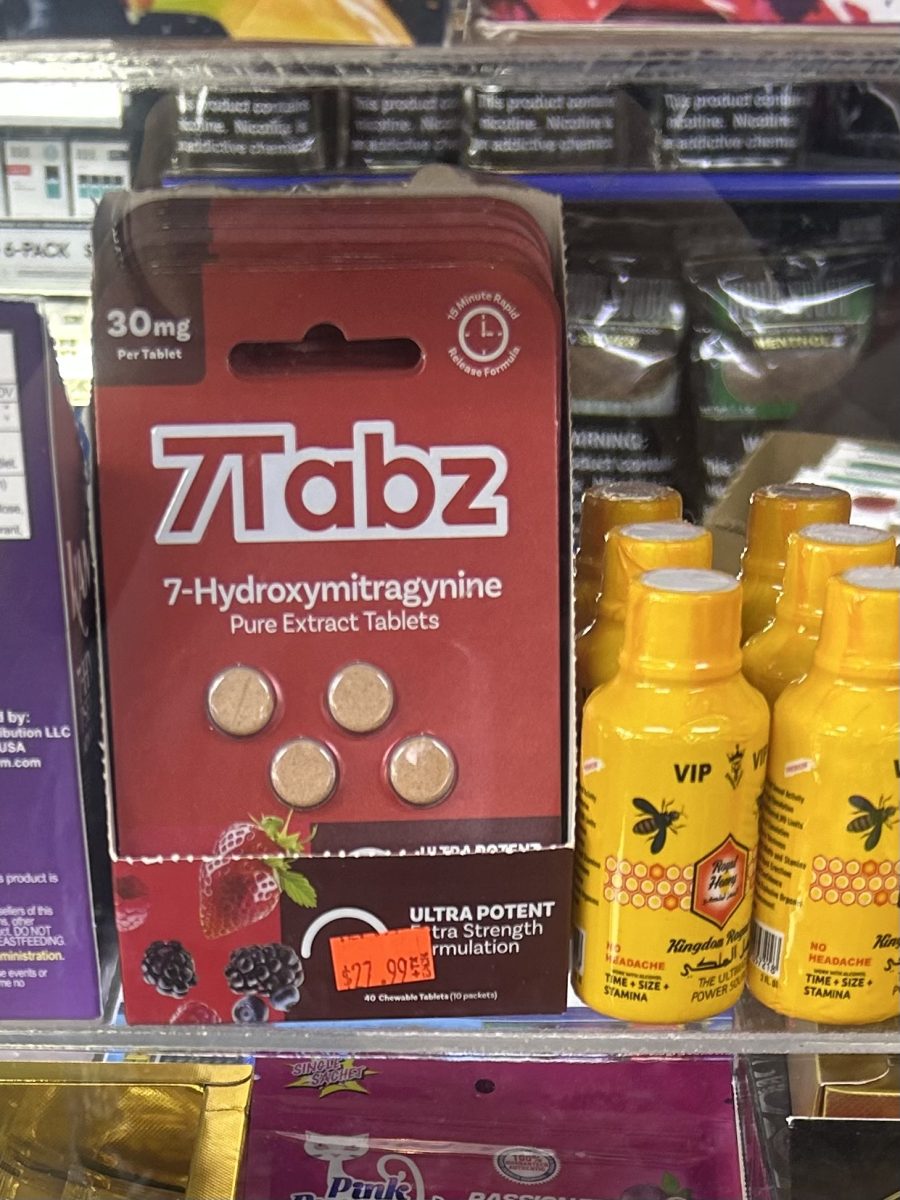Ohio Gov. Mike DeWine is calling on the Pharmacy Board to declare kratom an illegal drug due to the health risks it poses, but now the substance’s regulation is up in the air.
While not producing a traditional “high,” kratom can result in both stimulant and sedative effects that may appeal to young adults, including college students.
Kratom is cheap and widely available, even in Kent. It increases alertness and productivity, improves mood and lowers anxiety levels, which may make it seem like a miracle drug to students. But this “miracle drug” is highly addictive and poses health risks, experts say.
The substance kratom, also known as “thang,” “thom” and “ketum” informally, comes from a tropical plant native to Southeast Asia that can be smoked or taken orally via capsule or beverage.
An estimated 0.6% of Americans over the age of 12, a percentage comparable to Americans who used nonprescription cold medication, used kratom in 2021. However, Americans ages 18-25 were the group with the highest reported kratom use, 0.8%, according to a survey conducted by the Substance Abuse and Mental Health Services Administration.
Mac Haddow, senior fellow on public policy at the American Kratom Association, which prioritizes regulation of kratom rather than elimination, said many people use kratom “as a replacement for a cup of coffee.”
Others, Haddow said, may use it to boost their mood, decrease anxiety or to treat acute or chronic pain without opioids. Haddow also said many users have been able to relieve symptoms of opioid abuse with kratom.
While kratom’s effects on the body can include mild nausea, sweating and constipation, the U.S. Food and Drug Administration warns that kratom use can cause more severe negative side effects such as seizures and substance dependency.
Kratom itself is not the issue, researchers say. It seems to be the production and lack of consistency.
Christopher McCurdy, professor of medicinal chemistry at the University of Florida, has studied kratom for 20 years. In its native regions, kratom is used straight from the tree by chewing the leaves or boiling them with water; it’s a different case in the United States.
McCurdy said most of the kratom in the U.S. comes from the leaves after they’ve been dried and ground into powder. While most active components seem to stay stable, he said, researchers don’t exactly know “what happens with many of the other compounds in there and how they change. But this is definitely a different material, the dried leaf than the fresh leaf.”
Additionally, these products can be soaked in ethanol or altered to become more concentrated.
“As you start to increase the concentration of the compounds in the products, you start to increase the risk of harm,” McCurdy said.
Because of this chemical altering, some of the products sold in the U.S. under the name “kratom” are far from the traditional substance. Specifically, 7-hydroxymytragynine can be extracted from kratom.
This compound, called 7-OH for short, is potent and acts like an opioid. Before the leaves are dried, the actual plant contains only a trace amount of 7-OH. When 7-OH is isolated, McCurdy said, there are more serious risks such as respiratory depression, dependency, overdose or “death like you see with prescription opioids, oxycontin, heroin or fentanyl.”
The AKA has proposed two regulations that would limit excessive kratom tampering: any kratom products for sale must contain 2% or less of the 7-OH compound, and the means of concentration or extraction of that product must be FDA compliant.
With these provisions, the AKA has helped begin to regulate kratom in 18 states, Haddow said.
DeWine made an order regarding a state kratom ban, which would have been the first of its kind if passed. That order has been put on hold because Robert F. Kennedy Jr., U.S. secretary of Health and Human Services, wants to target kratom and all known substances containing synthetic 7-OH federally.
The Drug Enforcement Administration will conduct scientific analysis of 7-OH before determining the future of kratom in the United States.
DeWine may still want to seek regulation in Ohio, but there is no clear timeline. For now, the FDA has yet to approve kratom and warns Americans of the risks of synthetic 7-OH.
If you or someone you know is struggling with addiction or substance abuse, you can call or text 988. Kent State also offers a College Recovery Community for those seeking help with addiction.
Ari Collins is a beat reporter. Contact her at [email protected].



